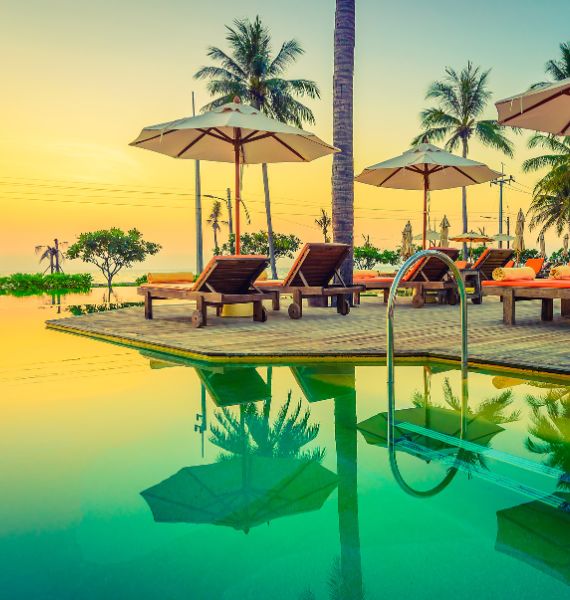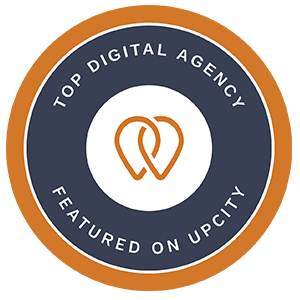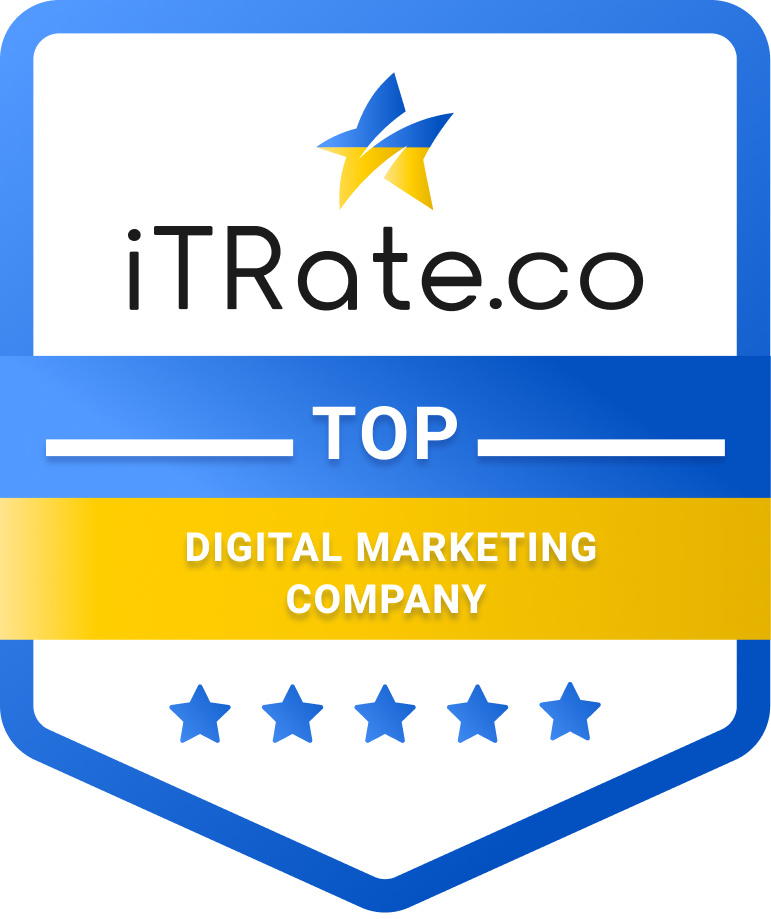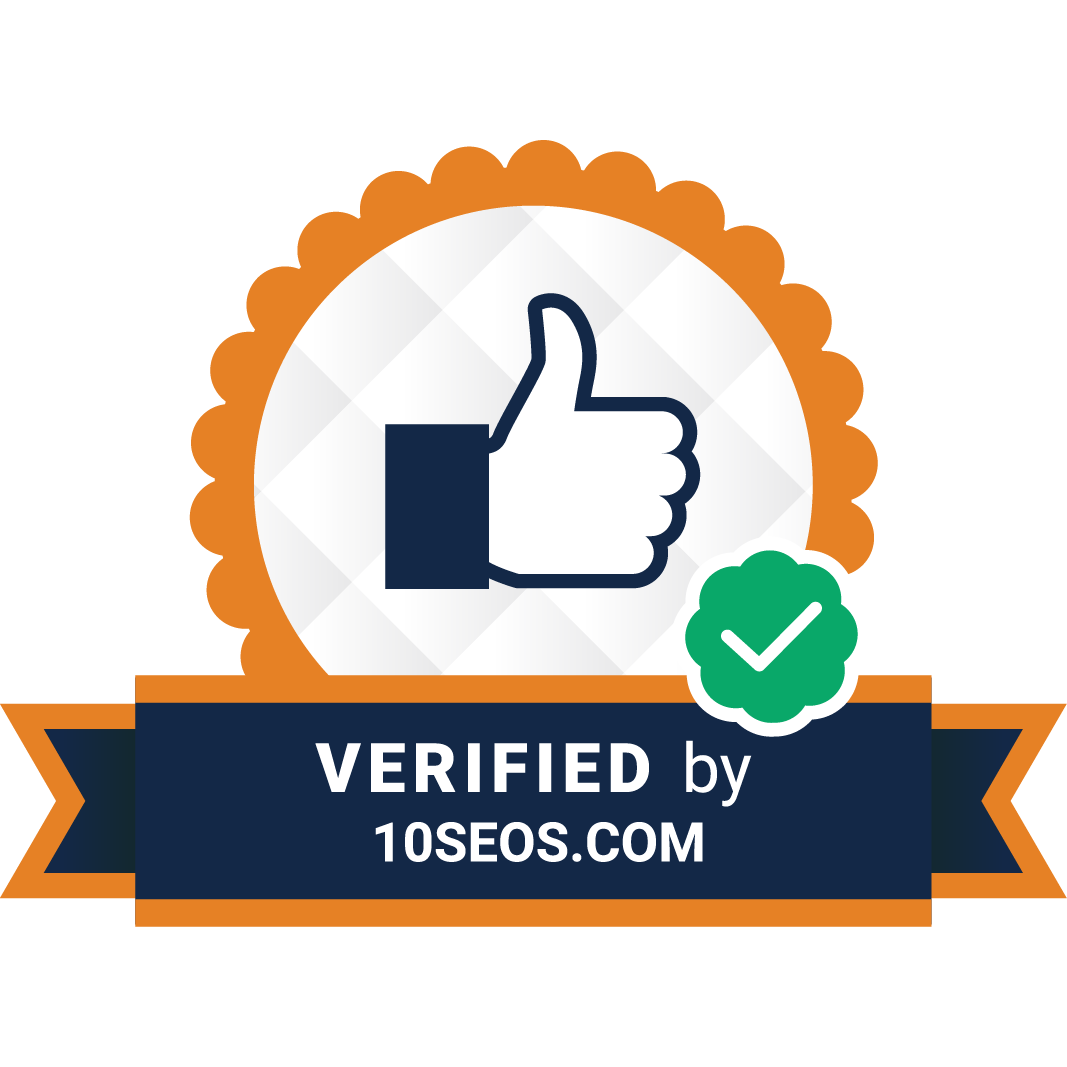Keyword List Updated: 14 August, 2025
The Only Guide You’ll Need to Dominate Google, Outrank Big OTAs, and Get Discovered by AI Engines
Most travel agencies waste time chasing rankings with broad, outdated keywords. This blog shows you the exact travel SEO keywords, strategies, and content structures that attract bookings for tour & travel operators in 2025. Whether you're a small tour operator in New York or a full-service travel company in Orlando, these travel SEO keywords and methods are how you start ranking, converting, and scaling.
What Are Travel SEO Keywords?
Travel keywords are popular travel terms, long-tail queries (phrases consisting of 3 words or more), local modifiers, seasonal shifts, and semantic variants that real travelers are typing (or speaking) right now, while planning their next trip.
People now ask questions. They search for experiences. They ask Google, Siri, or even ChatGPT:
- “Best 7-day Bali itinerary for couples”
- “Luxury wildlife safaris under $3,000”
- “Affordable ski trips from Delhi in December”
- “How to plan group travel for college reunion?”
These keywords are not just for SEO; these are signals for intent and buyer behavior.
The right travel SEO keywords help you match that intent, with content that sells, not just ranks.
And that’s where your travel website needs to show up: on Page 1, in the map pack, in the Answer Box, in voice results, and even in ChatGPT’s recommendations.
That’s the power of travel SEO in 2025.
To make this work, we’re going to show you:
- How to research high-converting travel SEO keywords
- What keyword categories matter most in 2025
- Where and how to use them (without stuffing)
- How to structure your website to earn clicks and bookings, not bounces
But before that, let’s tackle the question every agency asks...

What Is SEO for Travel Agencies?
SEO for travel agencies is all about helping your business get discovered when people search online for trips, packages, or travel help. It goes beyond just keywords. You need a fast website, relevant content, smart internal links, and a solid reputation online. When done right, it brings in visitors who are actively planning a trip and converts them into leads or customers.
In the travel industry, it is difficult to rank on top and get clicks because big brands like MakeMyTrip, Expedia, and Booking.com are eating those rankings alive.
Real SEO for travel websites is about gaining visibility online in SERPs and generative engines at the right time. For instance:
- When a couple plans their honeymoon to Santorini
- When a solo traveler looks for hostels in Portugal
- When a family Googles “best places to visit in Thailand in June”
- When an HR manager types “corporate retreat ideas near Mumbai”
- When ChatGPT recommends “top-rated adventure tour companies in Uttarakhand”
SEO for travel agencies is how you own those moments.
Here’s what makes travel SEO different from any other industry:
- Seasonality – You don’t promote ski trips in April or beach holidays in monsoon.
- Geo-specific search terms – Travelers search with names of cities, regions, airports, and even time zones.
- Experience-first queries – People search for feelings and outcomes, not services.
- Visual expectations – Your SEO must be image-rich, fast, and mobile-optimized.
- AI-readability – Your content must answer questions clearly for AI models that summarize, rank, and recommend.
In 2025, SEO for the travel industry is a game of authority + relevance + usability. And it begins with knowing which travel SEO keywords to use and how.
Why SEO Keywords Matter in the Travel Industry
If you’re not using the right travel SEO keywords, your travel agency is invisible to Google, travelers, and AI engines like ChatGPT, Gemini, and Perplexity.
Your competitors, especially those using strong travel SEO services keywords, are showing up in all the places where your next lead should have found you.
Your travel website can show up too, with the right SEO strategies. Because travel SEO is about being exactly where it counts:
- On the first page when someone searches "private group travel to Iceland"
- Inside a featured snippet answering "how to pack for a solo trip to Morocco"
- Listed by answer and generative engines as a recommended adventure tourism operator
- Found on image search when someone types "luxury beach resorts in Maldives"
That visibility happens when you use the right keywords for travel and tourism.
Think of your keywords as digital breadcrumbs. You’re leading someone from “I’m thinking of a trip” to “I’m booking with YOU.”
Let’s say your travel agency specializes in family holidays in Italy.
If your blog title is just “Best Trips for Families”, it’s too broad. You’ll drown.
But now try:
- “Best Family-Friendly Italy Itinerary for Summer 2025 (With Kid-Approved Stops)”
See the difference?
Now your page has:
- A destination-specific phrase (Italy)
- A niche modifier (family-friendly)
- A seasonal hook (Summer 2025)
- And it naturally includes keywords like travel itinerary, family vacation, and Italy tourism
Search engines love this. People love it more, and most importantly... they click.
That’s the goal. That’s why tourism SEO is non-negotiable in 2025.
If you want more bookings, better leads, higher visibility, and real trust, you will need SEO — and it starts by understanding the right travel keywords and the search intent.
Most Effective Travel SEO Keyword Categories
Below are the categories of SEO keywords that matter most for travel agencies, tour operators, and tourism brands in 2025:
Destination-Based Keywords
These keywords focus on specific travel locations like “Dubai tour packages” or “things to do in Paris.” They help capture search intent tied to a place and improve visibility in location-based results.
- Best places to visit in [Destination]
- [Destination] travel guide 2025
- Things to do in [City/Country/Region]
- Hidden gems in [Destination]
Why they work: They align with travelers in the planning and research phase. Use them in blog posts, itineraries, and landing pages.
Experience & Activity Keywords
These keywords are used by travelers searching for specific experiences, like “snorkeling in Maldives” or “hot air balloon ride in Cappadocia.” These keywords attract interest from people looking for themed activities.
- Hot air balloon rides in Cappadocia
- Wine tasting tours in Tuscany
- Adventure travel in Patagonia
- Wildlife safaris in South Africa
How to use them: Pair them with geo-keywords for even better results and use them on your tours & packages pages.
Intent-Driven Long-Tail Keywords
These are detailed, natural-sounding queries like “best time to visit Kerala for houseboat tour” or “how to plan a Europe trip under 1 lakh.” They reflect clear user intent and rank well in AI-generated results.
- Best family travel packages to Europe under $5,000
- Private guided tours in Japan for seniors
- Luxury honeymoon resorts in Bali all-inclusive
- Budget solo travel in Southeast Asia 2025
Why they matter: They’re long but specific — exactly what people search before they book. Use them in blog titles, FAQs, and package descriptions.
Seasonal Travel Keywords
Searches like “summer vacation destinations in India” or “Dubai New Year travel deals” fall into seasonal travel keywords. They help attract traffic based on seasons, holidays, or peak travel times.
- Winter getaways from Delhi
- Summer holiday packages Europe
- Best fall foliage destinations USA
- Christmas markets tours in Europe
Tip: Plan content for the next season at least 3–6 months in advance.
Accommodation & Hotel-Related Keywords
These keywords include terms like “luxury resorts in Bali” or “budget hotels near Eiffel Tower.” They target users comparing places to stay, often with high booking intent.
- Boutique hotels in Amalfi Coast
- Best family resorts in Thailand
- Affordable beachside villas in Goa
- Pet-friendly hotels in Scotland
Use these to promote your accommodation partnerships, affiliate links, or bundled packages.
Problem-Solving & Planning Keywords
These keywords answer common travel questions and improve visibility in Google’s People Also Ask and AI answers.
- How to plan a group trip without stress
- What to pack for a safari in Kenya
- Tips for traveling with toddlers abroad
- How to get a Schengen visa from India in 2025
These are the queries that land you in Google's PAA box and help ChatGPT recommend your site.
AI-Friendly Question Keywords
These are direct, FAQ-style queries like “Is Dubai safe for solo female travelers?” or “What’s the best way to travel in Europe on a budget?” They are easily picked up by AI overviews and voice assistants for quick answers.
- What are the best hidden gems in Italy?
- Which countries offer visa-free travel for Indian citizens?
- What’s the cheapest month to visit Japan?
Your content needs to be readable by both humans and AI. Make sure your content has clear headers, structured answers, and conversational flow.
Top 60 Travel SEO Keywords (High Volume)
| S.No. | Search Term Keyword | Volume |
|---|---|---|
| 1. | tourist sites near me | 6,120,000 |
| 2. | tourist places near me | 673,000 |
| 3. | tourist spots near me | 673,000 |
| 4. | tourist places | 673,000 |
| 5. | tourism | 450,000 |
| 6. | travel companies near me | 246,000 |
| 7. | tourist attractions | 201,000 |
| 8. | tourist attractions near me | 110,000 |
| 9. | tourist guide | 110,000 |
| 10. | tourist places to visit near me | 110,000 |
| 11. | nearest tourist places | 90,500 |
| 12. | tours and travels | 74,000 |
| 13. | eco tourism | 74,000 |
| 14. | tours and travels near me | 60,500 |
| 15. | tourist center near me | 60,500 |
| 16. | nearest tourist places near me | 49,500 |
| 17. | near by tourist places | 40,500 |
| 18. | travel tours | 33,100 |
| 19. | near me tourist places | 33,100 |
| 20. | tourist spot | 33,100 |
| 21. | tourist office | 33,100 |
| 22. | travel and tourism | 27,100 |
| 23. | tourism near me | 27,100 |
| 24. | medical tourism | 22,200 |
| 25. | sustainable tourism | 22,200 |
| 26. | department of tourism | 22,200 |
| 27. | tour companies | 18,100 |
| 28. | nearby tourist places near me | 18,100 |
| 29. | best travel companies | 12,100 |
| 30. | travel and tours | 12,100 |
| 31. | sunlight island resort | 12,100 |
| 32. | tourist destination | 12,100 |
| 33. | near by tourist places near me | 12,100 |
| 34. | sunlight eco tourism island resort | 9,900 |
| 35. | tour operators | 9,900 |
| 36. | adventure tourism | 9,900 |
| 37. | cultural tourism | 9,900 |
| 38. | tourist destination near me | 9,900 |
| 39. | mice tourism | 9,900 |
| 40. | tourist sites | 9,900 |
| 41. | tourist office near me | 9,900 |
| 42. | best tourist places near me | 8,100 |
| 43. | near tourist places me | 8,100 |
| 44. | tourism for all | 8,100 |
| 45. | tourism website | 6,600 |
| 46. | travel tours packages | 6,600 |
| 47. | best tourist places | 6,600 |
| 48. | international tourism | 6,600 |
| 49. | sports tourism | 6,600 |
| 50. | eco trip | 6,600 |
| 51. | travel tour companies | 5,400 |
| 52. | tourism and hospitality | 5,400 |
| 53. | health tourism | 5,400 |
| 54. | top tourist destinations | 5,400 |
| 55. | tour travel near me | 5,400 |
| 56. | popular tourist destinations | 5,400 |
| 57. | tourist attractions in the world | 5,400 |
| 58. | eco holiday resort | 5,400 |
| 59. | dental tourism | 4,400 |
| 60. | tourism company | 4,400 |
Use this travel keywords list across the homepage, category pages, and service offerings. It will help improve the performance of your SEO for tourism websites.

Request For More Details
Top 20 Travel Keywords in USA
| S.No. | Search Term Keyword | Volume |
|---|---|---|
| 1. | travel agency | 33,100 |
| 2. | travel agency near me | 18,100 |
| 3. | B2B travel agency | 1,600 |
| 4. | travel agency NYC | 6,600 |
| 5. | luxury travel agency | 2,900 |
| 6. | best travel agency | 2,400 |
| 7. | corporate travel agency | 2,400 |
| 8. | travel management agency | 320 |
| 9. | best vacations in the US | 1,600 |
| 10. | online travel agency | 1,900 |
| 11. | travel booking sites | 2,900 |
| 12. | travel websites for packages | 480 |
| 13. | carnival cruise travel agent | 1,900 |
| 14. | trivago flight and hotel | 1,600 |
| 15. | flight and hotel deals | 8,100 |
| 16. | travel package | 2,400 |
| 17. | travel company | 1,300 |
| 18. | how to start a travel agency | 1,000 |
| 19. | business travel agency | 1,300 |
| 20. | travel agency software | 1,600 |
Planning to do SEO for travel company? These travel keywords for SEO will help you perform better in Google Search and AI models.
Top 20 Search Keywords for Travel SEO in India
| S.No. | Search Term Keyword | Volume |
|---|---|---|
| 1. | tour packages | 33,100 |
| 2. | travel insurance | 33,100 |
| 3. | travel agency | 60,500 |
| 4. | travel agency near me | 74,000 |
| 5. | kashmir tour packages | 27,100 |
| 6. | family vacation | 5,400 |
| 7. | bus tickets | 60,500 |
| 8. | tours and travels near me | 49,500 |
| 9. | holiday packages | 9,900 |
| 10. | best travel agency in india | 5,400 |
| 11. | tour package | 33,100 |
| 12. | international tour packages | 6,600 |
| 13. | travel agent | 60,500 |
| 14. | travel packages | 5,400 |
| 15. | travel tourism | 1,300 |
| 16. | travel agency in lucknow | 5,400 |
| 17. | travel agency delhi | 14,800 |
| 18. | travel agency in pune | 8,100 |
| 19. | travel agency in delhi | 14,800 |
| 20. | travel agency in ahmedabad | 6,600 |
Are you creating a plan to improve SEO for travel companies in India? Here are the top searched keywords on Google India.
Latest SEO Tools We Use














Top 20 Keywords for Travel Agencies in the UK
The below are the best keywords for travel websites
| S.No. | Search Term Keyword | Volume |
|---|---|---|
| 1. | package holidays | 60,500 |
| 2. | british airways holidays | 165,000 |
| 3. | holiday packages | 22,200 |
| 4. | TUI package holidays | 14,800 |
| 5. | travel agents | 12,100 |
| 6. | holiday companies | 6,600 |
| 7. | travel agents near me | 8,100 |
| 8. | cheap holiday packages | 9,900 |
| 9. | cheap holidays to spain | 5,400 |
| 10. | holidays abroad | 5,400 |
| 11. | travel republic holidays | 2,900 |
| 12. | luxury holidays | 5,400 |
| 13. | holidays in UK | 4,400 |
| 14. | travel scotland | 2,900 |
| 15. | easyjet package holidays | 6,600 |
| 16. | easyjet package holidays | 6,600 |
| 17. | travel agency | 14,800 |
| 18. | all inclusive holiday | 6,600 |
| 19. | flight and hotel packages | 5,400 |
| 20. | booking holidays | 3,600 |
Top 20 Keywords for Travel Agency SEO in the UAE
| S.No. | Search Term Keyword | Volume |
|---|---|---|
| 1. | travel agency near me | 12,100 |
| 2. | travel agency dubai | 12,100 |
| 3. | travel agency | 12,100 |
| 4. | travel agency in dubai | 12,100 |
| 5. | tour packages | 1,300 |
| 6. | travel agency abu dhabi | 3,600 |
| 7. | tourism companies in dubai | 3,600 |
| 8. | holiday packages from dubai | 1,000 |
| 9. | best travel agency in dubai | 1,900 |
| 10. | holiday packages | 1,600 |
| 11. | eid holiday packages from dubai 2025 | 320 |
| 12. | travel and tourism | 1,600 |
| 13. | star atlantic travel agency | 600 |
| 14. | travels near me | 4,400 |
| 15. | dubai travel agency | 12,100 |
Long-tail keywords, along with SEO for tourism, offer higher conversion rates and lower competition.
Top 20 Long-Tail Keywords for Travel SEO (High Intent)
| S.No. | Search Term Keyword | Volume |
|---|---|---|
| 1. | tour and travels | 480 |
| 2. | outstation cab booking from airport | 300 |
| 3. | luxury car rental services for vacations | 600 |
| 4. | round-trip cab hire | 250 |
| 5. | rent minibus for school trips | 200 |
| 6. | family van rental | 480 |
| 7. | luxury SUV rental | 880 |
| 8. | tour car service | 150 |
| 9. | train ticket booking | 2400 |
| 10. | bus ticket online booking | 320 |
| 11. | last minute vacation deals | 22200 |
| 12. | flight and hotel packages | 18100 |
| 13. | hotel honeymoon packages | 1210 |
| 14. | hotel ski resort packages | 800 |
| 15. | hotel safari holiday packages | 700 |
| 16. | hotel booking deals | 480 |
| 17. | flight hotel spa | 550 |
| 18. | group tour packages | 480 |
| 19. | eco-tourism packages | 1100 |
| 20. | business event travel packages | 400 |
Top 15 Generic Keywords for Travel SEO (High Intent)
| S.No. | Search Term Keyword | Volume |
|---|---|---|
| 1. | travel and leisure | 18,100 |
| 2. | overseas adventure travel | 27,100 |
| 3. | how to become a travel agent | 14,800 |
| 4. | hawaii safe travels | 49,500 |
| 5. | known traveler number lookup | 14,800 |
| 6. | pilot travel center near me | 14,800 |
| 7. | travel agencies near me | 14,800 |
| 8. | travelling or traveling | 14,800 |
| 9. | verizon travel pass | 14,800 |
| 10. | travel agents near me | 27,100 |
| 11. | armed forces travel | 12,100 |
| 12. | travelling | 33,100 |
| 13. | costco travel rental car | 12,100 |
| 14. | hilton team member travel | 12,100 |
| 15. | the traveling wilburys | 12,100 |
Best 15 Semantic { LSI } Keywords for Travel SEO
| S.No. | Search Term Keyword | Volume |
|---|---|---|
| 1. | travel and leisure | 18,100 |
| 2. | overseas adventure travel | 27,100 |
| 3. | how to become a travel agent | 14,800 |
| 4. | hawaii safe travels | 49,500 |
| 5. | known traveler number lookup | 14,800 |
| 6. | pilot travel center near me | 14,800 |
| 7. | travel agencies near me | 14,800 |
| 8. | travelling or traveling | 14,800 |
| 9. | verizon travel pass | 14,800 |
| 10. | travel agents near me | 27,100 |
| 11. | armed forces travel | 12,100 |
| 12. | travelling | 33,100 |
| 13. | costco travel rental car | 12,100 |
| 14. | hilton team member travel | 12,100 |
| 15. | the traveling wilburys | 12,100 |
Best SEO Strategy for Travel Agencies
You need to know how travelers think and how to build content around their intent. It's because travel SEO is about matching what people search with what your website offers.
So what’s the best SEO strategy for a travel agency in 2025? It’s a focused, layered, intent-first strategy that works like this:
1. Nail Your Niche
If you’re a tour operator in Rajasthan, own that niche. Don’t waste time chasing global keywords like “best travel agency” or “holiday destinations.” Instead, you should target:
- Heritage tours in Rajasthan
- Luxury camel safaris Jaisalmer
- Udaipur royal palace day tours
This is the fastest path to Page 1 visibility and actual bookings.
2. Build Keyword Clusters
One blog on “Top 5 things to do in Santorini” won't help you become a leader in the industry. But if you create a content cluster like this:
- How to plan a 7-day Santorini itinerary
- Best time to visit Santorini for solo travelers
- Visa eligibility and requirements to visit Santorini
- Group travel tips for Red Beach in 2025
Now Google and ChatGPT recognize you as an authority in Santorini travel.
3. Optimize Every Page for Search Intent
Homepages, destination pages, tour descriptions, blogs – they all need travel SEO tactics, such as:
- Use 1–2 primary travel keywords per page
- Add long-tail variations naturally in your subheadings and content
- Optimize meta titles and descriptions that make people want to click
- Add FAQs to grab rich snippets
- Use internal linking to guide the reader deeper into your funnel
We’ll break this down further in the On-Page SEO section soon.
4. Create for People and Format for AI
Your next buyer might not come through Google. They might ask ChatGPT, Gemini, or Perplexity: “What’s the best group tour operator for Vietnam in 2025?”
Guess what happens next? AI bots crawl real websites, review their content, and recommend those that are clear, specific, well-structured, and full of value.
So yes, you’re now optimizing not just for humans, not just for search engines, but for AI assistants too.
5. Update, Don’t Just Publish
Old blog posts are goldmines if you update them. Every 6–8 months, go back and:
- Refresh dates (e.g. “Best destinations in 2023” → 2025)
- Add new data, new images, better CTAs
- Improve internal links
- Update metadata
Google sees this as a fresh signal and rewards updated content faster than brand-new posts.
How to Understand Search Intent for Travel SEO
This is where 90% of agencies go wrong. They find a keyword, write content, and wait for rankings. But it never comes. Why? Because they didn’t match the search intent.
There are 4 types of search intent that matter in the travel industry:
1. Informational Intent
Travel keywords with informational intent mean the traveler isn’t ready to buy but wants answers. So, give them rich, detailed blog posts, FAQs, checklists, or guides. This builds trust, and they’ll remember you later.
- What to pack for a trek in Nepal
- How to get a Thailand visa from India
- Best time to visit Iceland for Northern Lights
2. Navigational Intent
When keywords have navigational intent, it means searchers already know the brand. If you're the brand they are looking for, make sure your brand pages are SEO-optimized. If not, don’t waste time competing—move on.
- Expedia Italy tours
- Contiki reviews
- MakeMyTrip Bali packages
3. Transactional/Commercial Intent
These are the money keywords. Travelers are ready to book or contact. Make your landing page focused and persuasive—address objections, show urgency, and include reviews, pricing, itineraries, FAQs, and a strong CTA.
- Best 7-day Europe tour under 1 lakh
- Luxury Rajasthan tour operator for families
- Book Kashmir holiday package 2025
4. Local Intent
Keywords with local intent require a strong Google Business Profile, city-based landing pages, and geo-targeted content. Bonus tip: Add landmark references to clarify location relevance.
- Tour operators in Los Angeles
- Adventure tourism near Chicago
- Top travel agency in San Diego
Key takeaway: Every piece of content you publish must answer, solve, inspire, or guide based on the user’s search intent.
Keyword Tools for Travel Agent SEO
You need the right keyword research tools and the right method to know exactly what people are searching for before they even finish typing.
Here are the top keyword tools that will help you with travel SEO and optimize for your potential customers:
1. Google Search (Free. Still the best.)
- Start typing a phrase like “best travel destinations in…” and observe the autocomplete suggestions. These show what users are actively searching for.
- Scroll to “People Also Ask” and “Related Searches” at the bottom of the results. These are great sources of real, high-intent keyword ideas.
2. Google Keyword Planner (Free, But Powerful)
- Filter keywords by location, device, or language for precise targeting.
- View monthly search volume, cost-per-click (CPC), and suggested related keywords.
- Perfect for geo-targeted SEO campaigns even if you're not running ads.
3. AnswerThePublic
- This tool turns keywords into questions your audience is asking.
- Useful for blog titles, FAQs, and YouTube video topics.
- Example questions for “Thailand travel” include:
- Is Thailand safe for solo female travelers?
- What to wear in Thailand in March?
- Which island in Thailand is best for families?
4. Ubersuggest by Neil Patel
- Offers keyword ideas, traffic estimates, and keyword difficulty scores.
- Provides keyword clusters to help organize content around related terms.
- Great for mapping out blog series or topic clusters.
5. Keywords Everywhere (Browser Extension)
- Shows keyword data directly on search engine result pages (SERPs).
- Provides search volume, CPC, and competition right inside Google, YouTube, and Amazon.
- Ideal for quick, on-the-go keyword insights while browsing.
6. SEMrush / Ahrefs (Advanced, Paid)
- Helps you spy on competitor keywords and see what’s driving their traffic.
- Discover backlink opportunities and ranking gaps.
- Track keyword performance and create data-backed strategies.
- Pro tip: Identify your competitor’s top blog posts and create even better, more updated versions.
On-Page Optimization Tactics for Travel SEO
You’ve found the right keywords. Now, you make your pages irresistible to both search engines and humans. That’s where on-page SEO comes in. Let’s break it down:
1. Use Keywords in Strategic Places
- Include your main keyword in the page title (H1), URL, and meta title & description.
- Place it within the first 100 words of your content.
- Use it naturally in one subheading (like an H2 or H3).
- Include it in the alt text of 1–2 images.
- Add it as anchor text in at least one internal link.
- Example: If your keyword is “Luxury Maldives Travel Packages,” don’t bury it — feature it early and naturally in your page copy.
2. Write for Scanners
- Use short paragraphs for easy reading.
- Break up information with bullet points and bold text.
- Include clear subheadings to guide the reader.
- Highlight takeaways that matter most to your target audience.
3. Use Internal Links (Strategically)
- Link from blogs to landing pages using keyword-rich anchor text.
- Example: Link “Italy in spring” to your page about “Italy travel packages.”
- This helps Google understand your site structure and helps users explore more.
4. Optimize Images for Travel SEO
- Use descriptive image file names like
family-tour-santorini.jpg. - Add alt text that includes relevant travel keywords.
- Compress image sizes for faster loading speeds.
- Use WebP format where possible for better performance.
5. Add Structured Data (Schema Markup)
- Use
FAQPageschema for Q&A sections. - Apply
TouristAttractionschema on destination pages. - Use
Breadcrumbschema for navigation clarity. - Use
LocalBusinessschema for geo-relevance and local visibility.
6. Create Clear, Click-Worthy Meta Titles & Descriptions
- Keep them specific, emotional, and benefit-driven.
- Bad example: “Blog – XYZ Travels”
- Good example: “7-Day Bali Itinerary for Couples | Romantic Getaways 2025 by XYZ Travels”
7. Always End with a Call to Action
- Encourage users to take the next step after reading your page.
- Examples of strong CTAs:
- Reserve their spot
- View more packages
- Get a custom quote
- Download a free guide
- Join your newsletter
Every page should lead somewhere. Otherwise, you’re just giving information, and not creating bookings or improving your brand recall value.
Local SEO Strategy for Tour Companies
If you’re a tour operator, destination expert, or local travel agency, you cannot afford to ignore local SEO. If you’re not showing up in the map pack, on Google Maps, or in local recommendations from ChatGPT, you’re leaking leads. Big time.
Here’s how to fix this through local SEO for tour operators:
1. Claim and Optimize Your Google Business Profile (GBP)
- Ensure accurate business name, address, and phone number (NAP).
- Add high-quality images of your tours, destinations, and office.
- Write a keyword-rich description (without sounding robotic).
- Post updates regularly—such as tours, offers, or travel tips.
- Respond to every review—positive or negative.
- Choose correct categories like “Tour Operator,” “Adventure Travel,” or “Travel Agency.”
Doing this alone can help you rank above OTA listings for local travel searches.
2. Create Local Landing Pages for Every Region You Serve
- Use separate URLs for each destination:
- /goa-tour-packages
- /kerala-group-travel
- /andaman-snorkeling-adventures
- Include region-specific travel keywords.
- Add maps, location info, and nearby attractions.
- Use testimonials from customers in that specific region.
- Link internally to blogs, FAQs, and booking pages for each region.
Google views this as localized authority, which improves visibility for local search intent.
3. Use Local Business Schema
- Add
LocalBusinessorTouristDestinationschema to your site. - Include service area, business type, availability, geo-coordinates, and ratings.
- This helps your pages appear in voice search, map results, and AI-based travel tools.
4. Local Backlinks Are More Valuable Than Generic Ones
- Get backlinks from:
- State tourism boards
- Local bloggers and publications
- Regional business associations or chambers of commerce
- Local event sponsors
- Destination-specific influencers
5. Get Local Citations & Reviews
- Ensure your NAP info is consistent across platforms like:
- TripAdvisor
- Justdial
- Yelp
- Viator
- GetYourGuide
- Local tourism directories
- Encourage customer reviews after every tour.
- Send automated emails with a review link post-booking.
- Use location-rich keywords in reviews, such as “best Kerala backwater experience.”
Local SEO isn’t about being everywhere—it’s about showing up exactly where your travelers are searching. For travel brands, local visibility wins over global noise every time.
Get Started with SEO for Travel Agency Today
Want your travel agency to show up on Google when people search for their next adventure? Then travel SEO is essential. So, whether you're a solo tour guide or a large-scale tour company, this is your sign.
Partner with Media Search Group – a leading travel SEO and digital marketing company with an experience of 13+ years. We offer dedicated travel SEO services, including customizable SEO packages and competitive pricing, to help you become the first choice for your potential customers.
Be it on-page SEO, off-page SEO, local SEO, technical SEO, or detailed keyword research for travel SEO, we have the best marketing team ready for your project.
Make SEO your best investment in 2025.
Frequently Asked Questions
Travel keywords are the words and phrases that people type into Google when they're searching for trips, destinations, or travel services. For example:
- “best places to visit in Europe”
- “adventure tours in India”
- “luxury honeymoon packages Maldives”
- “group travel agency near me”
These keywords help Google understand what your travel website offers and help travelers find your site at the right time.
To find popular travel SEO keywords, use keyword research tools like Google Keyword Planner, Ahrefs, SEMrush, or Ubersuggest. Start by typing a general topic like “family holidays” or “solo travel in Europe” and check what people are actually searching.
Also, look at Google’s autocomplete suggestions and the “People also ask” section for real phrases travelers use. These tools show you the search volume, competition, and keyword trends, so you can pick the ones that actually bring traffic.
Choose travel SEO keywords based on:
- Relevance: Does this keyword match your offer?
- Search Volume: Are enough people searching for it?
- Buyer Intent: Does the keyword suggest someone is ready to book or still just researching?
- Competition: Can you realistically rank for it?
Also, focus on long-tail keywords like “luxury travel packages for couples in Italy” because they have lower competition and higher intent.
Here are some solid examples of high-performing travel SEO keywords:
- “flight and hotel packages” (make it location-based)
- “cheap holidays to Spain”
- “Kashmir tour packages”
- “Eid holiday packages from Dubai”
- “Eco-tourism packages in Cambodia”
- “Hotel safari holiday packages [location]”
- “honeymoon packages under $5000”
These combine search volume, buyer intent, and clarity about the offer and are also perfect for SEO.
The four main types of SEO keywords are:
- Informational Keywords – Used when someone is researching (e.g., “things to do in Japan”).
- Navigational Keywords – Used when someone is looking for a brand or specific website (e.g., “Expedia tours”).
- Transactional Keywords – Used when someone is ready to book or buy (e.g., “book safari tour Kenya”).
- Commercial Investigation Keywords – Used when someone is comparing options (e.g., “best group travel agencies 2025”).
You need all four across your site to guide visitors through every stage of their journey.
Each page should target one primary keyword, and then naturally include a few related terms. Avoid overstuffing. Google and AI answer engines now look at semantic context, not just exact matches. Aim for 1-2% keyword density, but make sure it reads naturally.
A good keyword density is about 1% to 2% of your total word count. So, if your blog is 1000 words, use your target keyword about 10-20 times. But don’t count words obsessively. What matters most is natural, useful content that flows smoothly.
The best keyword is the one that your ideal traveler is typing into Google right before they’re ready to book. It should have:
- High intent
- Clear relevance to your offer
- Enough monthly searches
- Low-to-medium competition (if you're starting out)
For example, “private luxury tours Italy 2025” is a much better target than just “Italy travel.”
SEO power words are emotionally persuasive words that drive clicks and engagement. Some examples of SEO power words that you can include during travel website optimization are:
- “Best”
- “Top-rated”
- “Affordable”
- “Exclusive”
- “Limited-time”
- “Tailor-made”
- “All-inclusive”
- “Hidden gems”
When used in titles and meta descriptions, these boost your chances of standing out in search results.
Here are some travel-related words that naturally connect with SEO for tourism:
- Explore
- Journey
- Tour
- Adventure
- Escape
- Retreat
- Cruise
- Experience
- Destination
- Itinerary
Use them where it makes sense because Google loves content that sounds like it’s written for humans first.












